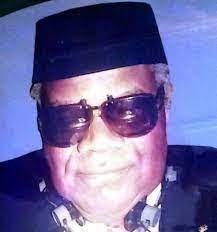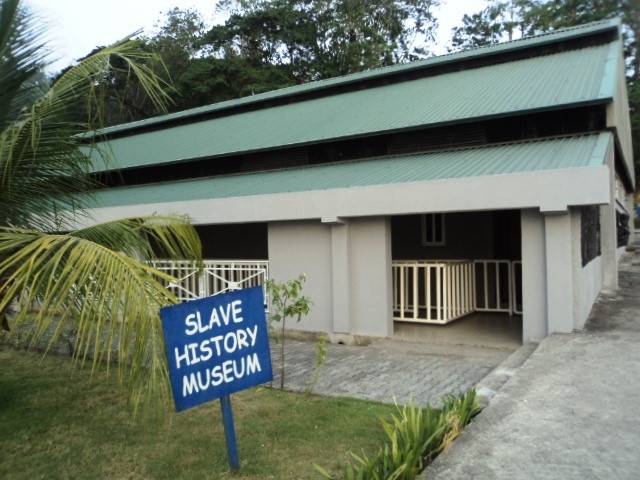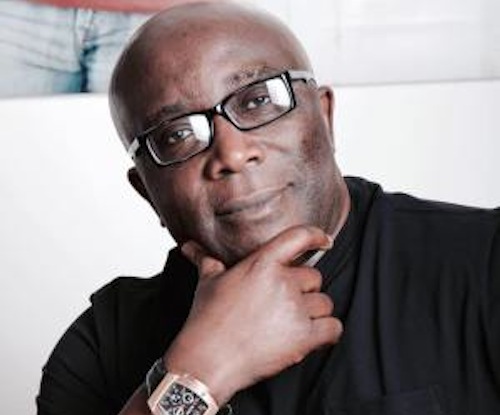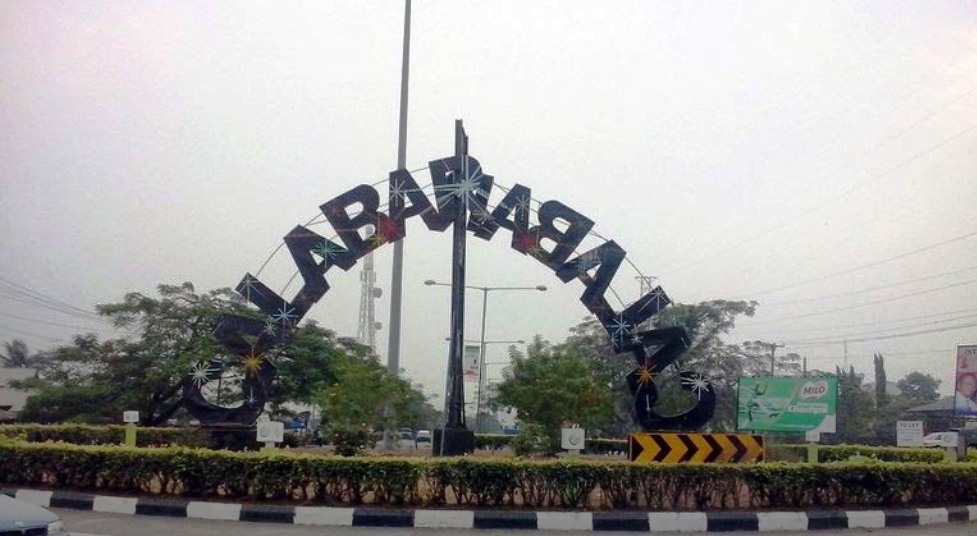Chidi Amuta
Chinese leader, Xi Jiping, wears the face of the looming age of China in world affairs. Inscrutable but amiable in a rather mechanical way, Xi is a man with a huge world historic mission but few words. Under his leadership, the coming of the age of China has acquired greater tractionand urgency than ever. But as in Xi’s facial expression, we have no way of knowing everything the Chinese are thinking about the future of the world. They think in Mandarin and communicate directives to 1.4 million citizens. I suspect they only translate 25% of what they want the world to know and believe into English and other languages. Ordinarily, then, the Chinese are an inherently quiescent people, a land of everyman as a stoic Confucian contemplative philosopher.
On the contrary, the Americans think and talk too much in English with the result that nearly everybody can second guess their next set of moves. It is America’s rowdy politics and talkative diplomacy that is drawing out the Chinese to occasionally say some of what they are doing if only to respond to some of the outrageous claims and charges tumbling out of Washington daily. This contrasting approach is likely to dominate big power relations in the decades ahead.
All the same, feverish rehearsals for a prolonged contest of global pre-eminent between the United States and China are gathering steam in many spheres. The Chinese are literally foraging in unusual backyards for strategic footholds in anticipation of a confrontation that is foretold but may never take place. In the Asia Pacific, China has staked an unmistakable claim on what it considers its immediate sphere of influence and interest. It is building navel and air bases in the South China Sea. It has served notice to nations like the Philippines that its presence and interests can no longer be ignored. It has flexed its muscles in its border areas with India while serving notice to Australia, New Zealand and Japan that it intends to contest the influence of the West, especially the united States, in the areas that matter to China’s long term interests.
In Africa, the Chinese have already established a full scale naval base in Djibouti under the understandable pretext of contributing to the safety of the troubled waters in the Gulf of Aden, a major shipping gateway long troubled by Somali pirates. It was hard to fault their logic as the Djibouti facility came in handy when Libya unraveled and the Chinese rapidly evacuated thousands of Chinese workers from Libya.
For Nigeria and West Africa, however, a concerning development with long term consequences has just taken place. United States intelligence reports as recently confirmed by The Wall Street Journal and subsequently echoed and analyzed by The Economist to the effect that the Chinese have just completed the construction of a deep sea naval port facility in Bata, Equatorial Guinea.
This is China’s first effective foothold in the Atlantic. It is a development that has irked Washington making it send a high level emissary In turn, it has sent a high level emissary to caution the authorities in the tiny African country on the dangers of facilitating China’s global ambitions. In addition to Equatorial Guinea, the Chinese are said to have their eyes on the ports of Angola, Sao Tome and Principe and others. Its strategy is either to have outright naval bases or friendly port access in some of these places. China is already involved in the construction or development of a number of port facilities in Africa including Lagos.
In an April, 2021 assessment presented to the US Senate, General Stephen Townsend, Commander of US Africa Command, asserted that ‘China’s most significant threat …would be a militarily useful navel facility on the Atlantic coast of Africa. (That means) a port where they can rearm with munitions and repair naval vessels.” This is precisely what may have been achieved with the facility at Bata in Equatorial Guinea. Washington was sufficiently worried about the development to send Jon Finer, its deputy national security adviser on a mission to the tiny republic to register the unease of Washington with the development.
What is significant for Nigeria with this development is first the sheer physical proximity of the Chinese military presence. Malabo is a mere 144 kilometers away from Calabar, 225 kilometers from Port Harcourt and a little over 600 kilometers from Lagos. These distances are immaterial in today’s world of virtual proximity of everywhere from everywhere. What is important is Nigeria’s strategic interest and stake in the Gulf of Guinea and the sensitive positioning of Equatorial Guinea in that mix.
Of course, it is well within the sovereign prerogative of Equatorial Guinea to enter into any arrangements with any other country to locate whatever facilities it considers in its national interest. As they have tended to do in recent times, the Chinese are free to seek out whatever African dictatorships it can find and cajole or bride them into whatever agreement that serves its interest. On the surface, both China and Equatorial Guinea may have acted within their rights under international law in the location of the naval facility at Bata. But as is common with all such sensitive strategic decisions, there is nothing in the legitimacy of this action that should deter other nations that are likely to be adversely affected by the action from acting in defense of their own national interests. If Equatorial Guinea ever becomes a theatre for the drama of competing national interests between China and the United States, Nigeria may not be a disinterested bystander.
On their part, the Chinese in choosing Equatorial Guinea acted well within a predictable model of political behaviour. Equatorial Guinea offers an ideal partner, the type of African state that the Chinese would opt to deal with. The country is an autocracy presided over by a ruthless 79 –year old with iron fist since 1979. President Teodora Obiang Nguema Mbasogo is one of Africa’s longest ruling leaders. The government in which his son is also the Vice President is a famously corrupt family autocracy. Everything ranging from the oil industry, telecommunications and retail trade are controlled by either the president’s family or cartels under their direct sponsorship. This autocracy is the closest the Chinese can get to finding a kindred spirit to their own homegrown communist authoritarianism in an African ‘elected’ government.
Something needs to be said in favour of the Chinesenational interest in their foreign forays. As at 2020, China controls 15% of total world trade and still rising. Similarly, an estimated 2 million Chinese workers and experts are scattered all over the world engaged in various projects. This huge expanse of trade and manpower implies a global presence which dictates that the Chinese develop a maritime capacity around the world to guarantee the safety of their goods and personnel. And in any event, the West must understand that the rise of China as an economic competitor on the world stage has an inevitable military consequence. It is understandable if the United States and the West get unduly jittery over the prospect of Chinese military competition. That is in the nature of the contest for global power pre-eminence.
Ordinarily, however, Nigeria’s strategic interests can hardly find comfort with the military presence of an anti Western power right inside its strategic armpit. The Chinese may have designed a foreign policy of non interference in the internal politics of African countries where they choose to conduct their business. In that regard, Nigeria may naively assume that Chinese presence in Equatorial Guinea does not necessarily concern us and may not constitute a credible threat. After all, China is a ‘friend’ and development partner. They have lent us nearly $3.5 billion in concessionary loans. They are building us shinny new railway tracks with rolling stock to ferry our millions around the country. Some of our high public officials have not disguised their love and admiration for the Chinese and their suppression of civil and democratic rights. Mr. Lai Mohammed is enamored of the Chinese control and censorship of the social media and their over regulation of conventional media.
All this is costly naivety. It is convenient to trade with China as even the United States does. If we find that their loans come at a concessionary rate, let us borrow from them but make sure that we match our appetite for copious borrowing with a plan for responsible repayment. Otherwise, the shrewd Chinese will enforce forfeiture and repossession clauses in those loan agreements which are almost always written in Mandarin. Nonetheless, We cannot wish away the fact that we remain one of the West’s most important and long lasting allies and investment destinations in Africa. The United States, Britain and France would be hard put to trifle with Nigeria’s alliance and support in the event that the showdown with the Chinese assumes a loud international scope.
It is significant in this regard to point out that the new Chinese naval facility in Equatorial Guinea is the first effective physical presence of a major power so close to Nigeria. As a matter of national pride and reflex, Nigeria has habitually rejected the presence of military bases by contending powers either in its territory or too close by.
Older Nigerians will recall that soon after independence, the first major elite uprising against the government of the newly independent nation was against an attempt to sign a defense pact with the British government. Thiswould mean the establishment of British military bases in Nigeria. This was roundly rejected.
Similarly, in the heat of the Niger Delta militancy, hints by the governments of the period to invite friendly countries to establish amphibious special forces facilities in the Niger Delta were similarly rejected. Even with the upsurge of the Boko Haram insurgency, international effort to contain the insurgency were treated as part of the global fight against international terrorism. The United States specifically suggested the location of a base in Nigeria to host the drones it was deploying to aid the operations in the Sahel. Those drones would enable it maintain surveillance and target Boko Haram and ISWAP movements. But Nigeria rejected the suggestion. Instead, the US unit is currently based in Chad from where it supports French troops in their Sahel anti terrorism operations.
Rewind to the late 1980s and early 1990s. In the desperate dying days of apartheid South Africa, the racist regime came to see Nigeria as its most consequential adversary. Nigeria with its then vast resources and considerable diplomatic and military clout was the most lethal ‘front line’ state standing in opposition to the apartheid regime. But Nigeria was too far away and could not be easily destabilized the way it had done with its immediate neighbors. So, South Africa went shopping for pliant client states near enough to cause Nigeria some sleepless nights.
Equatorial Guinea and Cameroun presented themselves for divergent purposes. Both being located in the soft underbelly of Nigeria, were attractive to a determined adversary. First, Equatorial Guinea was cajoled into the location of a South African military outpost with sensitive listening facilities. Second, the Cameroun government was encouraged by South Africa to ratchet up pressure on Nigeria by rekindling its claims on the Bakassi Peninsula. The government of Ibrahim Babangida recognized the credibility of the strategic threats and communicated its displeasure to both countries.
In response to Equatorial Guinea, the Babangidaadministration’s response was a classic carrot and stick approach. In addition to securing a bilateral air services agreement that enabled Nigeria Airways to frequently fly into Equatorial Guinea, Nigeria undertook a number of assistance development projects in Equatorial Guinea. These ranged from schools to health facilities. As a ‘stick’ component, the Nigerian Navy activated a forward presence in the Atlantic Sea board with an operational base at the Calabar port and surveillance oversight stretching through much of the Gulf of Guinea. The Nigerian Navy’s flagship, NNS Aradu, was stationed around the waters off Calabar mostly as a psychological deterrence. The Nigeria Air force activated a combat strike fighter squadron in the same vicinity.
In response to Cameroun’s irritations over Bakassi, Nigeria reinforced its troops presence in the border areas. In response to some skirmishes across the border, the Nigerian army displayed strength with restraint while diplomatic efforts at the United Nations sought to arbitrate the border issues.
Nigeria was not done yet. On the diplomatic front, Nigeria engaged with the government of F.W Deklerkwhich was already prepping to dump the apartheid system. Very quickly, apartheid ended. Mandela was released from prison. South Africa became a free and democratic country. It no longer needed outposts for trouble making in our backyard. Nigeria’s response then was a mixture of some carrots, a dangling stick nearby and measured diplomatic engagement. That was the old Nigeria, at the height of its power and influence as an emerging regional power. That was the world as it was then.
Fast forward to 2020-2021. China is in Equatorial Guinea not as an adversarial force. But it is close enough to cause us strategic concern. The question is whether the sensitivity of Nigeria was at any time considered in the sighting and execution of the Bata facility.
Regrettably, what we are witnessing is the erosion of whatever diplomatic and military clout Nigeria ever had as a former emergent regional power. Our domestic economy is in a free fall. Whatever remains of our military clout is bogged down in internal security engagements with a cocktail of non- state trouble makers. We have lost strategic foreign policy focus,having run a government for close to 10 years without a word about a foreign policy review. Nigeria has literally disappeared from the radar of significant international strategic calculations. This is the context for understanding why developments like the Chinese Bata naval base are likely to feature more in the years ahead.









